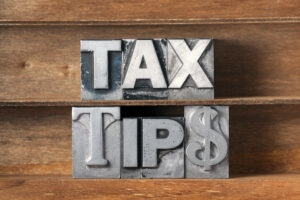Why Are Your Property Taxes So Darn High?
While the majority of people pay the most attention to the taxes they see regularly, i.e. income and sales tax, there are other taxes that cost you a lot of money that you may tend to forget about. One of those taxes that cost a lot, but that kind of goes unnoticed is property tax. In fact, depending on where you live and how much property you own, your property taxes can be huge. For some people, like residents of New Jersey for example, property taxes seem extreme.
A 2014 study by Monmouth University found that 26 percent of New Jersey residents said that they were “very likely” to move to a different state, with the most common reason being the high price of housing and property taxes – with property taxes being the main culprit. Residents of Connecticut and New York are also often on the list of highest property taxes. Why is that some locations have much higher property taxes than others?
There are several reasons that property taxes vary from state to state and city to city. Here are just a few of the main causes:
- State employees make a lot of money – if your state pays its workers well, like New Jersey does, then chances are your property taxes are higher in order to help foot that bill.
- Not Much Tourism – if your state lacks a lot of out-of-town visitors then property taxes could be higher to make up for lost revenue.
- Good schools – in order to have the best schools you have to pay for the best teachers and education services. The funds for those expenses often come from property taxes.
- Valuable property – no matter where you live, if you have a valuable home then you will almost assuredly pay more in property taxes. That’s because your property tax is based on the assessed value of your home times the local tax rate. A higher value home equals higher property taxes.
There are other possible reasons for high property taxes, but these are some of the most common. If you want to avoid outrageous property taxes, then your best bet is to simply move to a state where property taxes are lower.
Tips to Help Taxpayers with January 30 Tax Season Opening
We thought it a good idea to share some tips to help taxpayers with the January, 30 tax season opening. The IRS will begin processing most individual income tax returns on Jan. 30 after updating forms and completing programming and testing of its processing systems. The IRS anticipated many of the tax law changes made…
Deductible Business Expenses
Deductible Business Expenses Business expenses are the cost of carrying on a trade or business. These expenses are usually deductible if the business is operated to make a profit. What Can I Deduct? To be deductible, a business expense must be both ordinary and necessary. An ordinary expense is one that is common and accepted…
Setting Personal Goals at Home and at Work
Should you be setting personal goals at home and at work? Do you find yourself drifting every now and then, going from day to day, just not achieving very much? If the answer’s yes, don’t worry!…you’re not unusual. But a lot of people do find it hard to get out the trap. They know they could…
Federal Government Takes in Record Tax Haul in 2014
Federal Government Takes in Record Tax Haul in 2014 Three trillion dollars is a lot of money. Just imagine what you could do with $3 trillion. The possibilities are practically limitless. Of course no one is worth $3 trillion, individually. However, the United States Federal Government recently reported that for the 2014 fiscal year it…




